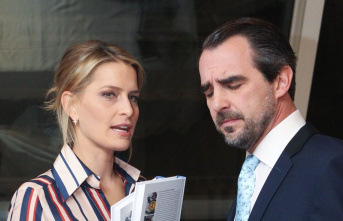Some people know from their own lives that there is sometimes a certain amount of nostalgia associated with department stores. Maybe there was an aunt who used to work at Karstadt. Or who got percentages from Hertie. Some have loved taking the escalator to the toy department. Or remember how they bought their first perfume on the first floor when they were teenagers.
In any case, the television industry makes use of the department store as a supposed place of longing. After productions such as "Mr. Selfridge", "The Paradise" and "Eldorado KaDeWe", RTL is now also bringing out a historical series about a department store on Tuesday at 8:15 p.m. It has no more subtle title than "The House of Dreams".
Berlin, 1928: Arthur Grünberg (Alexander Scheer) strolls through an alley. Well, how far along are you? he is asked. He assures people that his department store will open soon. In the "Jonass", according to his idea, people should be able to pay in installments. This should also allow people who have little money to afford something.
"We are the first credit department store in Europe - and that, gentlemen, that's sensational," said Grünberg at a business meeting. When the others still have doubts about the project, he undresses and shows his war scars stark naked. If he believes in something, says Grünberg, then he is ready to give everything.
At the same time, young Vicky (Naemi Florez) applies to work as a saleswoman in the new department store. She falls in love with a musician (Ludwig Simon) whose true identity will bring some complications. The series tells of poverty and dreams of upward mobility, of the life of a Jewish merchant family and of a young woman.
The first six episodes by director Sherry Hormann ("Altes Land", "Nur Eine Frau") are opulently equipped and largely avoid what can make other series torturous, namely superfluous dialogues.
The characters are interestingly designed - even in the supporting roles there are characters whose story one would like to follow longer. Some scenes are a bit pathetic, but the series is well-made television.
The screenplays are based on the novel "Torstraße 1". The former department store of a Jewish family at the same address serves as a template. After the expropriation by the Nazis, the building was used by the Hitler Youth and later by the SED, according to the documents for the series. Today, the "Soho House" is a private club that many celebrities visit.
A total of twelve episodes were filmed. The first six episodes are now shown and are set in the late 1920's. According to RTL, the other episodes play in the years 1932 and 1933. This season two can be seen on the RTL streaming portal from this week. The team of actors also includes Nina Kunzendorf and Samuel Finzi.
What is actually interesting is that series in recent years have been reminiscent of the heyday of department stores. Nowadays, department stores have massive competition from online portals. But sometimes things are transfigured in a nostalgic way. In any case, the series propagates to some extent that buying things can be associated with happiness. A view that some have long questioned, also with regard to the world's resources.












